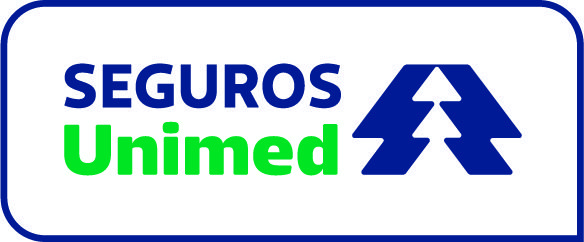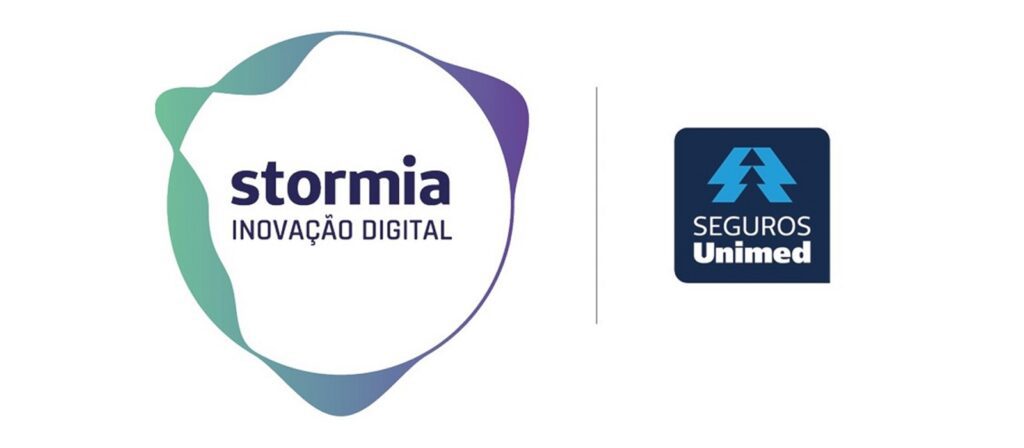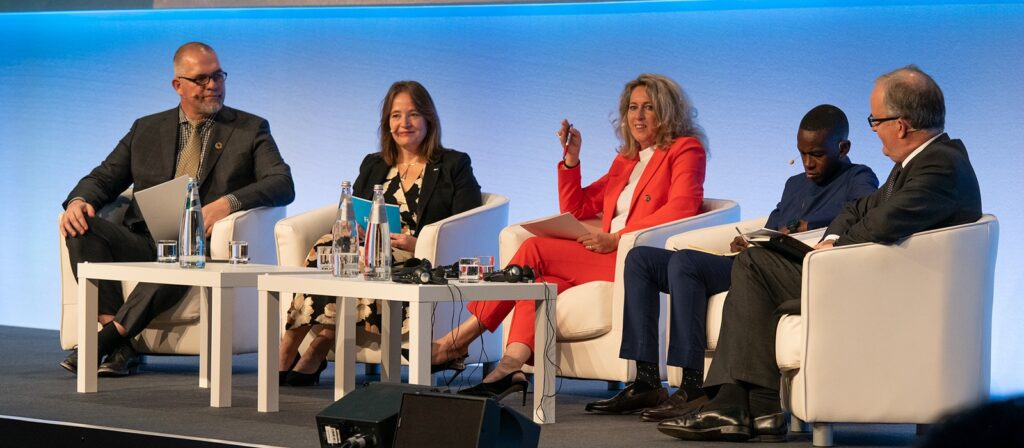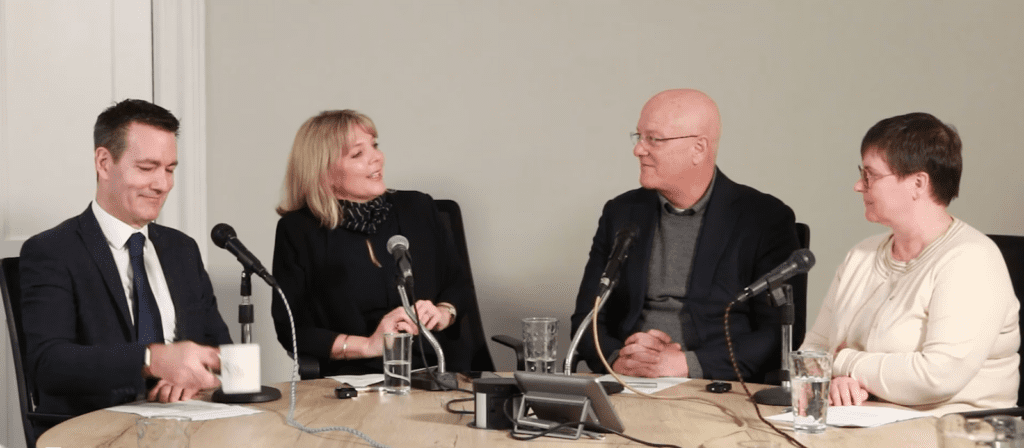In the latest in a series of interviews with CEOs from ICMIF member organisations, Helton Freitas, President of Seguros Unimed (Brazil), shares his perspectives on the cooperative advantage, adapting for the future, his own methods for continuing to learn and develop as a leader, and his advice for the next generation of leaders. He discusses Unimed’s strategy, digital transformation and the importance of sustainability.
How does being a cooperative make a difference? Does it provide you with a competitive advantage?
In a world in which alternatives to the current economic model are sought, has a high potential for innovation. Creative, collaborative and solidarity economies have been identified as sustainable economic models which carry cooperative concepts. Cooperatives demonstrate that it is possible to generate profit, improve social equality and innovate by proposing a more horizontal and diverse business model. It is in these environments that disruptive patterns are developed, with great potential for impact on the market.
Because it is a system that distributes the "profit" in proportion to the operations carried out by the cooperative member, this type of structure ends up being more accepted in the market, which increases the excellence and competitiveness of the service provided. The trust between policyholders and the cooperative insurer creates a favourable environment for geographic expansion: in the case of the Unimed system1, the union of cooperatives has already allowed the brand to expand to 90% of the national territory, with 340 Unimed offices, 118,000 members, 19 million beneficiaries and more than 143,000 direct jobs.
The objectives of the cooperative model are collective and members contribute equally to the capital of their cooperatives, which also means they help in maintaining democratic control. Cooperatives are also committed to democratising access through affordable prices. This beneficial approach not only impacts cooperative members, but also reverberates positively in the community in which they operate, generating a network of social impact. In this sense, cooperatives are perfectly aligned with community concern, through the promotion of local employment and social actions, reflecting the values that guide this collaborative and solidary philosophy.
The Unimed System is a comprehensive and innovative ecosystem for the protection of health, life, and property in Brazil. Through our expertise in health and risk management, we help people make better choices and lead full, safe, and prosperous lives. For this, we offer a diversified portfolio of products and services with a humanised, agile, and simple service for customers and companies across the country.
1. The Unimed System is a comprehensive and innovative ecosystem for the protection of health, life, and property in Brazil. Through our expertise in health and risk management, we help people make better choices and lead full, safe, and prosperous lives. For this, we offer a diversified portfolio of products and services with a humanised, agile, and simple service for customers and companies across the country.
What are the main pillars that make up your strategy? How does this relate to your purpose?
The pillars of our strategic map, which guide all our businesses, include sustainability, innovation, the customer at the centre, commitment, and the cooperative model. I would also like to highlight the values that make up our organisational identity: integrity, respect, solidarity, and cooperative spirit.
The cooperative model is present in our values, therefore, it is important to emphasise that the seven cooperative principles (free and voluntary membership, democratic management, economic participation, autonomy and independence, education, cooperation and interest in the community) are fundamental for Seguros Unimed. Democratic management in particular, which guarantees everyone's voice and participation in important decisions; autonomy in participating in strategies; and cooperation between teams. This helps us implement more effective responses that provide mutual benefits for the internal team and for our customer base.
What have you learned during the pandemic that is now influencing your current strategy?
The COVID-19 pandemic brought a series of challenges that required organisations to adapt quickly, and Seguros Unimed was no different. We were one of the first companies to waive the contractual clause that did not require the payment of claims in the event of a pandemic in Vida e Serit (Temporary Disability Income Insurance) products. Confirmed indemnities due to the disease reached BRL 234 million (USD 47 million), benefiting almost 16,000 policyholders and their families, between March 2020 and March 2023.
During this period, Unimed implemented important changes, such as telemedicine services, allowing beneficiaries to receive safe and quality medical care at a distance. This initiative was essential to ensure access to healthcare during times of social distancing and travel restrictions. In addition, Seguros Unimed intensified its concern for the health and well-being of its beneficiaries, providing guidance and prevention programmes and specific care for the population at risk. These adaptations are important legacies that the insurance company already had and were strengthened after the challenging scenario we went through, but which showed us the ability to adapt.
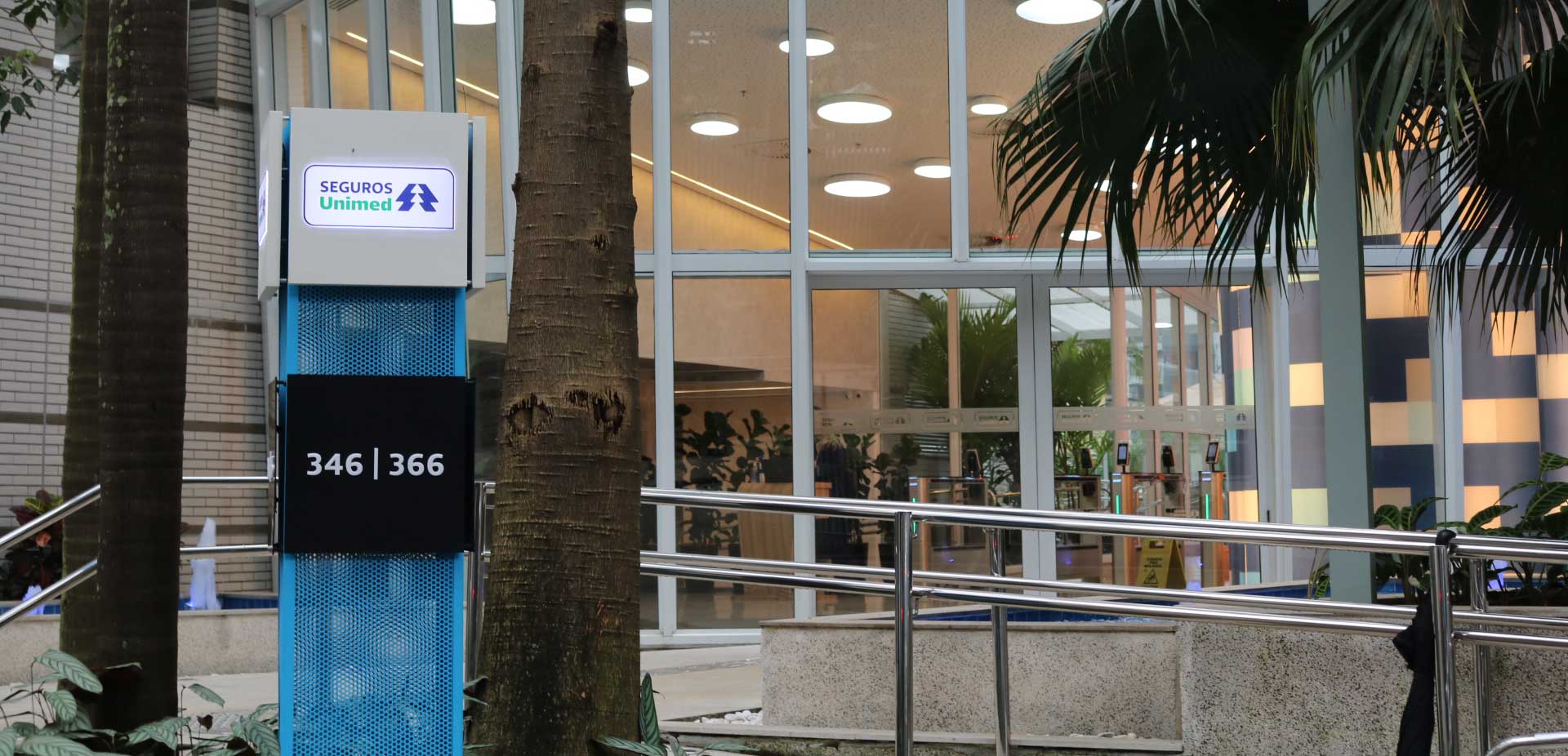
How is your organisation adapting for the future? What are you doing now to make this transformation a success and what is the role of your foundation Fundação Unimed in this?
We are implementing the use of Artificial Intelligence, which is increasingly present in all of our company processes. In order to improve the management of resources and adapt to changing regulations, such as those of the LGPD, Brazil’s General Personal Data Protection law, Unimed started to migrate its entire base to a single platform, under the Data Lake House model, one of the most modern and automated data storage tools.
Another example of the use of Artificial Intelligence is machine learning. Unimed has partnered with DataRobot, which allows the implementation of predictive models in the actuarial, legal, medical accounts and health promotion areas. Our virtual oral health consultant, who assesses the risk of oral pathologies, offers personalised guidance, and recommends dental professionals who are most likely to solve the user's problem.
It is also worth mentioning the 'Ideias De Valor' (Value Ideas) programme, which encourages our teams to contribute with solutions, projects, products, and processes that bring efficiency to the operation and the satisfaction of our six million policyholders.
Answering the last part of the question, Fundação Unimed, as the sponsor of the Faculdade Unimed college, has a fundamental role in adapting for the future, as it invests and believes in knowledge and innovation as an instrument for transforming the area of health and the life of the population in general. Our college is accredited by the Ministry of Education and offers the development of theoretical and practical courses according to the reality of each graduate and post-graduate degree in the areas of health, management and the cooperative model. In addition to conventional educational approaches, the Unimed College stands out for its consultancy and advisory activities, supporting the management of cooperatives.
There are 14 educational centres spread throughout Brazil, which contribute to increasing access to corporate education and are open to all audiences, including those who are not part of the Unimed System. A great example is the free course 'Caregivers for the Elderly', a partnership between Faculdade Unimed and Instituto Unimed Nacional, which aims to help students, who do not need to be specialists in the field of health, to help loved ones who needs special care. Anyone over 18 who is interested in this training can participate.
Finally, I highlight the National Centre for Clinical Research and Technology of the Unimed System, which aims to disseminate knowledge and facilitate access to data and scientific research, which can, for example, direct investments in hospitals and treatments. We have met eminent researchers among our cooperative members, and highlighting their work is a commitment to the cooperative model in medical and health in general.
What are the biggest challenges affecting the health insurance sector in Brazil and how do they impact Seguros Unimed?
The lack of clarification about is a key point that needs to be addressed in Brazil. In both public and private healthcare systems, allows people to share the costs of unpredictable events, minimising the individual financial impact. To ensure the proper functioning of mutualism in insurance and health plans, it is essential that the members of the group understand the terms, conditions, costs, and coverage offered, which is not always the case.
In Brazil, the relevance of health plans for the economy is enormous. Brazilian families account for 58% of the health budget, compared to 42% from the government, unlike other countries where the government is responsible for a larger share. The impact of supplementary health on the economy does not stop there, the sector is currently responsible for employing around 3.5 million people.
Faced with this scenario, we have a challenging paradox: the great desire of Brazilians to have a private health plan, the fear of those who have this benefit, and at the same time a public that does not make conscious use of this plan, compromising a mutualist system, as I explained above, and causing a series of negative impacts to the supplementary health system, with waste, and fraud , most of the time all this generated by the misunderstanding that there is no limit to funding.
There is also an unfavourable regulatory scenario, which disregards the sector’s sustainability, as new procedures and technologies are included without proper assessment of safety, effectiveness, and cost, three areas that underpin (or should underpin) the incorporation of new health technologies. This indiscriminate incorporation of new technologies can bring risks to the health system, with increases in costs above inflation and the payment capacity of companies and people, that is, we always have scarce resources for an infinite demand.
Although there is a list of procedures prepared by the regulatory agency, which is already quite comprehensive, in 2022, the sector still experienced a clash in the Senate over the bill that limits the procedures covered by the health insurance. At the end of year, Law 14,454/22 was approved, which establishes criteria to ensure coverage of health tests or treatments not included in the List of Health Procedures and Events. The new determination further encourages the increased intervention of the State in health, compromising costs operators and, consequently, users.
Can you tell us about the regulatory challenges faced by mutual insurers in Brazil and are you hopeful that mutual insurance will be recognised as a legal form in the future?
Mutual insurers in Brazil face challenges related to regulation and legality. The lack of clear, comprehensive, and specific laws for mutual insurance makes their application difficult and creates uncertainty for mutual insurers. Brazilian legislation is more focused on the traditional model of insurance, which limits ability to compete and expand their business. However, there is hope that mutual insurance will be legally recognised in the future, as awareness of its benefits is increasing and initiatives are being taken to promote legality, such as proposals under discussion in the National Congress and articulation and representativeness efforts by part of mutual insurers. This indicates the possibility of regulatory changes, allowing mutual insurers to operate more safely and effectively in the Brazilian market.
Sustainability appears to be very important for Seguros Unimed. Can you give us some examples of your recent work in this field and explain how sustainability is optimised in the company?
Seguros Unimed was born from the cooperative system, precursor of the concepts that make up the Environmental, Social. Governance (ESG). Therefore, it already has, by nature, the concern with the education and development of its surroundings, with the preservation of the environment, and with transparent governance and fiscal responsibility.
The pillars of ESG are directly linked to the cooperative model and, consequently, to Seguros Unimed’s principles: to be sustainable, long-lasting, and profitable. Thus, we act to strengthen important actions, such as having a more diverse team, we collaborate with other cooperatives to develop them financially, we invest in automation to reduce the use of paper and we are committed to programmes to preserve the Brazilian fauna.
Unimed underwent a significant digital transformation, and you were very successful in launching the Super App and the Stormia innovation platform. Can you tell us about the challenges you had with this transformation? And any other successes in innovation that we haven't heard about?
Innovation plays an important role in business sustainability. In a scenario of constant technological evolution and fierce competition, organisations that do not adapt and do not seek new ways of acting run the risk of being left behind. Innovation makes it possible to create differentiated products and services, meet new customer needs and explore new markets. In addition, it promotes efficiency and improvements in internal processes, allowing companies to be more agile, productive, and competitive.
A very important programme that made it possible to implement these new technologies was Stormia, the nucleus responsible for investing in and implementing disruptive projects, in addition to expanding innovation at Seguros Unimed.
Stormia is even responsible for the implementation and success of Data Lake House and DataRobot, mentioned above. Another successful case in the innovation pillar is Tina, a virtual oral health consultant developed by Unimed Odonto, in partnership with Infinitti, São Paulo State University (UNESP) and . The digital platform assesses the risk of oral pathologies, offers personalised guidance, and can indicate professionals who are more likely to solve the policyholder's problem. Still on this path of innovation, the operator of dental plans from Seguros Unimed recently launched SorrIA, a plan that makes use of text data collected by Tina so that it is possible to understand the individual needs of each beneficiary and prepare personalised guidelines, such as, for example, when is the time to carry out a routine examination, a preventive consultation, or a specific treatment.
How do you continue to learn and develop as a leader? What keeps you inspired?
Continuous learning is essential for growth as a leader. I'm always looking for new knowledge and perspectives, exchanging experiences with other leaders, listening to Seguros Unimed teams, and learning from the cooperatives in the Unimed System and the insurance market. One milestone that fills me with pride is the "Incredible Places to Work 2022" award, granted by UOL, which we won last year. This recognition reinforces our commitment to the well-being and engagement of teams, encouraging me to look for innovative ways to create a collaborative and inclusive working environment.
The cooperative movement is another source of inspiration. Created in the 19th century, it is an enduring and successful model. Being involved with the cooperative model is a daily exercise in sharing and cooperation, in line with principles such as free membership and commitment to the community. It is a model in which everyone has a voice, business is transparent and sustainable development is a priority. In short, the key is to never stop improving and keep building a rewarding work environment for everyone.
For the next generation of leaders, what do you think are the most important leadership traits and resources needed to be a CEO in the future?
For aspiring CEOs of the future, a few key characteristics stand out as essential. First, adaptability is key - the ability to adjust to an ever-changing environment. Along with this, a clear strategic vision is needed, allowing leaders to effectively direct their teams towards long-term goals.
Communication takes on a new dimension. Advanced communication skills not only convey ideas, but also build connections and understanding. Additionally, being knowledgeable about emerging technologies is essential to staying ahead of the curve. Future leaders need to embrace the mindset of finding creative solutions to complex problems. Sustainability, whether social or environmental, becomes a priority. The ability to balance profits with social and environmental impacts is a hallmark of effective leaders of the future. The future requires leaders who adapt, innovate and lead with strategic vision, empathy and awareness.
Here at Seguros Unimed, we encourage our activities to be carried out with unity and collaboration. Thus, we hope that our managers can build connections and partnerships inside and outside our company. Our managers are our main change agents. They must involve their teams by creating a stimulating environment that encourages the search for transformative results and continuous learning. For this, leaders must monitor market trends, evaluate and propose their applicability in the context of Seguros Unimed. We also want our leaders to be a source of inspiration and mobilisation for our employees.
At Seguros Unimed, we are all responsible for creating a healthy work environment, where listening and respect prevail. Leaders must demonstrate a sincere interest in listening to people and be able to analyse whether challenges and responsibilities are compatible with the degree of development and potential of each professional at that point in their respective careers. There must be a foundation of trust, respect, and diversity.
Seguros Unimed is hosting the ICMIF Americas Conference 2023 which will take place in Belo Horizonte from November 8-10. The theme of this year’s event is Bridging the protection gaps which provides a focus for the conference, looking at how ICMIF members are engaging in prevention & mitigation; sustainability; product innovations; and cost efficiencies, to ensure they leave no one behind.
